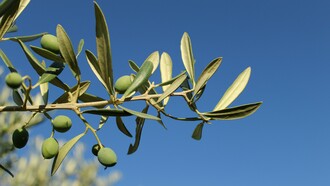As one of Africa’s youngest nations, Angola is rapidly asserting its position as a leading power in the continent’s oil and gas sector. Blessed with immense hydrocarbon reserves, the young nation is harnessing its resources, reshaping its future, and leaving an indelible mark on the international scene.
Angola, with a population of over 32 million, is the second-largest oil producer in Africa, trailing only behind Nigeria. The country’s oil and gas sector is critical to its economy, accounting for about a third of its Gross Domestic Product (GDP) and 90% of its exports. The cornerstone of this burgeoning industry lies offshore in the pre-salt and post-salt layers, where multinational corporations, alongside national oil company Sonangol, extract the lion’s share of Angola’s petroleum.
In recent years, Angola has embarked on a robust reform agenda to attract foreign investment, strengthen its oil and gas industry, and diversify its economy. The government’s efforts to improve the business climate, coupled with its strategy of promoting bidding rounds for oil and gas exploration, have positioned the country as an attractive destination for international oil companies.
Despite these impressive strides, Angola’s oil-dependent economy poses various risks. Fluctuations in global oil prices have resulted in significant revenue instability, emphasizing the need for economic diversification for the country. Recognizing this, the Angolan government has embarked on a strategic plan to develop other sectors, including agriculture, fisheries, and tourism, to cushion the economy from potential shocks.
The nation’s youthfulness is another crucial factor shaping its future. About 60% of Angola’s population is under the age of 25. This burgeoning youth demographic, if well managed, could be a transformative force, driving innovation, economic growth, and socio-political change. The government’s investment in education, particularly in science, technology, engineering, and mathematics (STEM), is a promising step towards harnessing this potential in this regard.
However, Angola also faces significant corruption-related challenges that have hindered its development and diversification efforts. Chief amongst the cases of corruption is the case of Isabel dos Santos, daughter of former President José Eduardo dos Santos, who is accused of embezzling billions of dollars from state coffers. Although the current Angolan government has pledged to tackle corruption, the dos Santos case led to significant negative coverage of Angola in international media, which has had an effect on the country. Accordingly, substantial progress is needed to ascertain partners on the domestic and international levels that deep-rooted sources of corruption are being addressed. Obviously, the success of these anti-corruption measures will be pivotal in determining the trajectory of Angola’s economic and social development.
With that being said, there is no denying that on the international stage, Angola’s oil and gas resources have made it a key player. The country is a member of the Organization of Petroleum Exporting Countries (OPEC), and its strategic location along the Atlantic Ocean makes it an attractive partner for both Eastern and Western powers.
Looking ahead, Angola’s growing prominence in the oil and gas industry, coupled with its young population, paints a compelling picture of a nation on the cusp of a promising future. However, the path is not without challenges. Economic diversification, the need to maintain a stable political environment, root out corruption, and the urgency to invest in its youthful population are critical to Angola’s sustainable development. Lastly, investors are closely watching the country’s progress, and their future actions and decisions will largely hinge on Angola’s potential advancements and reforms.
Moving forward, the country faces both immense opportunities and significant challenges alike. The way in which Angola’s leadership responds to these challenges and opportunities will play an essential part in cementing or dismantling Angola’s position in the international sphere. The world is watching as this young nation takes up the mantle of leadership in Africa’s oil and gas sector. However, whether or not it manages to carve out its unique path in the annals of global geopolitics is another matter.















